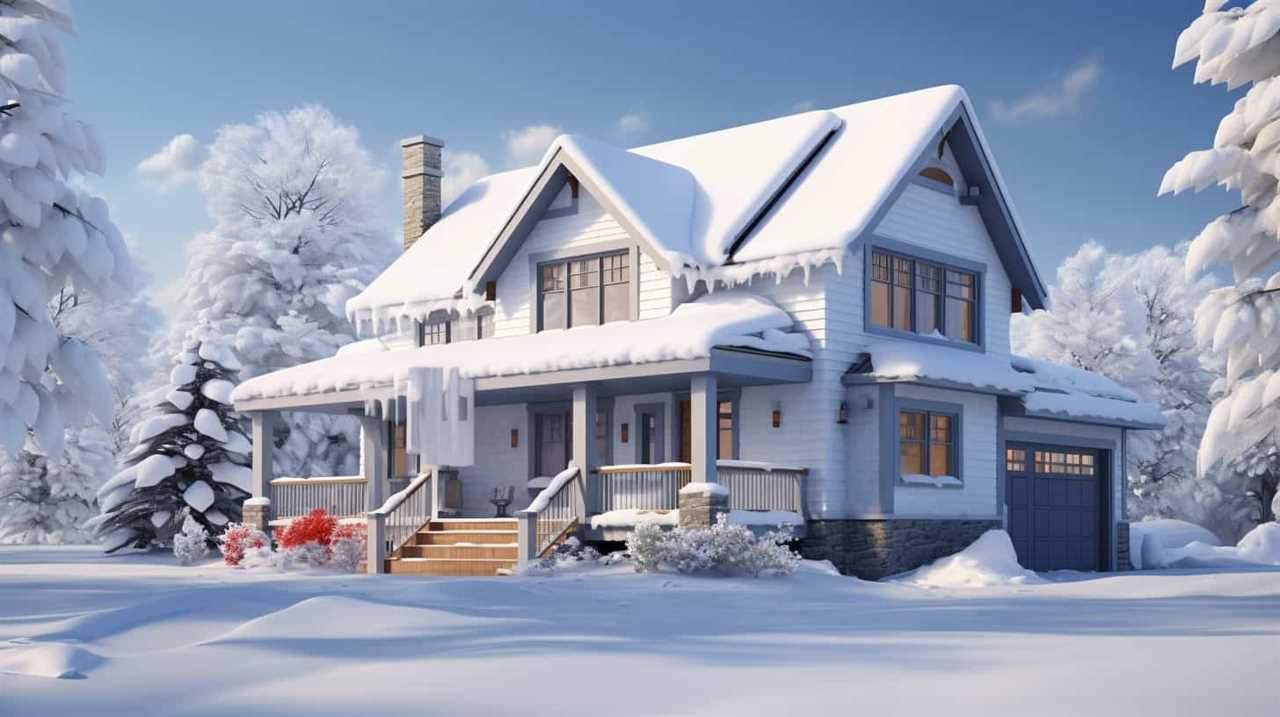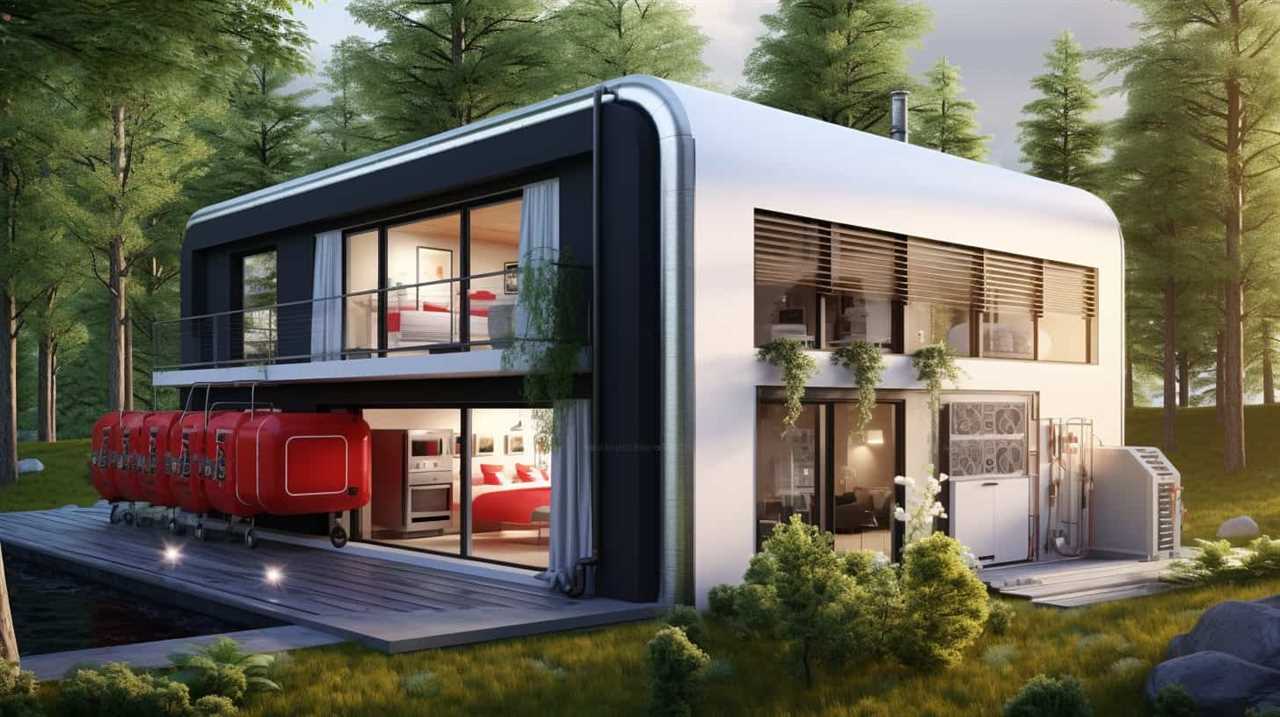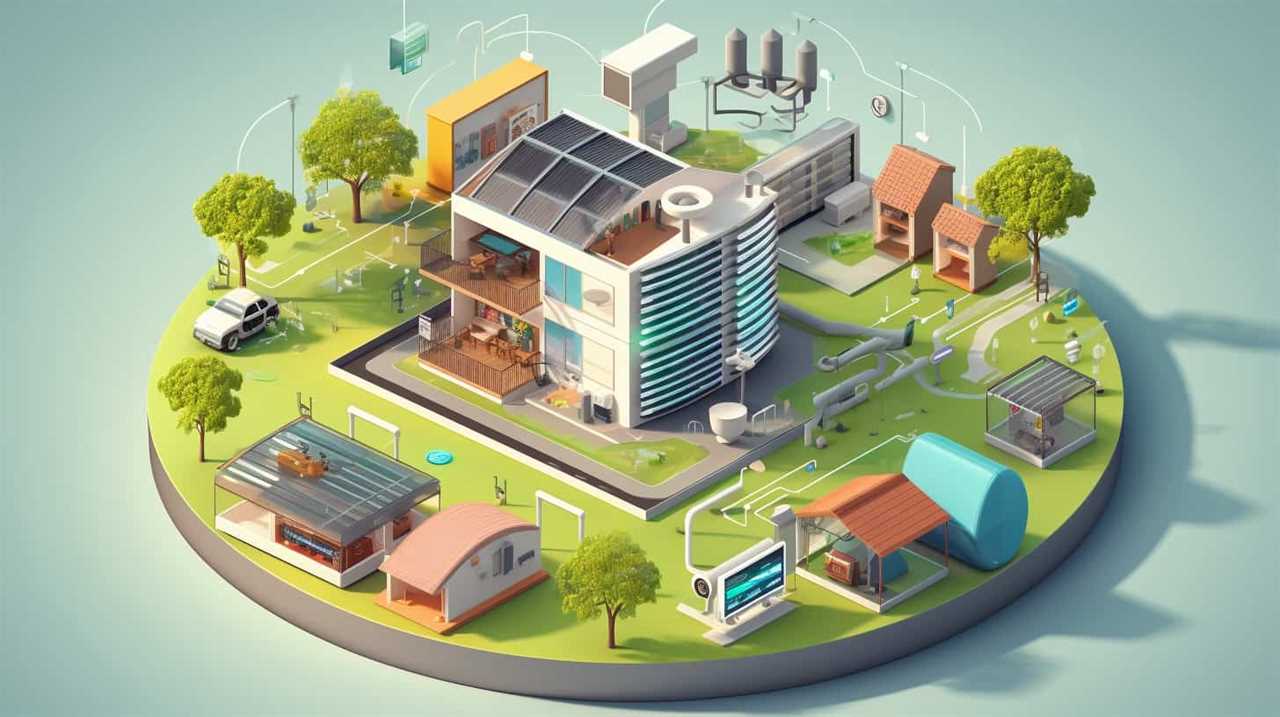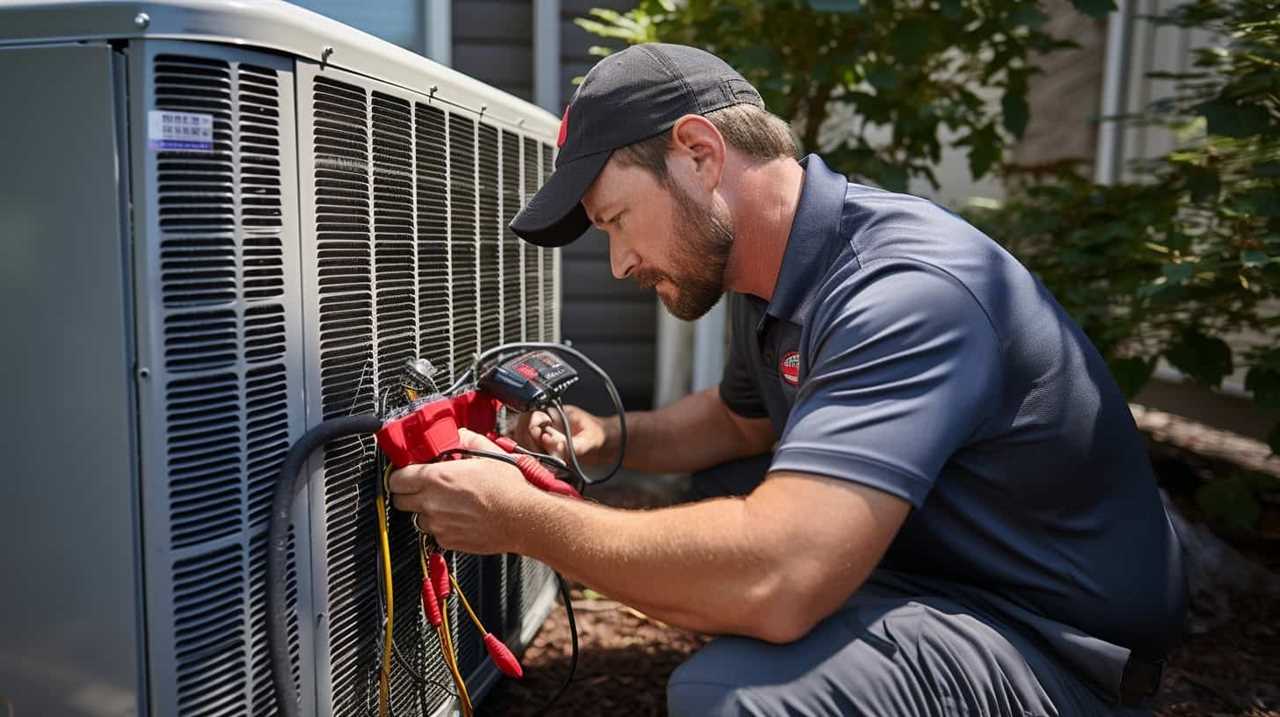Are you prepared to seize control of your HVAC upgrade? We have the perfect solution for you: heat pumps.
With their efficient technology and versatile options, heat pumps are the key to unlocking a more comfortable and energy-efficient home.
In this article, we’ll guide you through the process of choosing, installing, and maximizing the benefits of heat pumps for your HVAC system.
Get ready to liberate yourself from high energy bills and enjoy the ultimate comfort.

Key Takeaways
- Heat pumps transfer heat rather than generate it, making them highly energy efficient.
- Heat pumps use renewable energy sources, reducing reliance on fossil fuels and decreasing greenhouse gas emissions.
- Heat pumps provide both heating and cooling functions, eliminating the need for separate systems.
- Heat pumps offer convenience and versatility.
Understanding the Benefits of Heat Pumps for HVAC Upgrades
We’re going to explain the benefits of heat pumps for HVAC upgrades.
Heat pumps offer cost-effective solutions and promote environmental sustainability.
One of the main advantages of heat pumps is their efficiency in heating and cooling. Unlike traditional HVAC systems, heat pumps transfer heat rather than generating it, making them highly energy efficient. This translates into lower energy consumption and reduced utility bills.
Heat pumps also contribute to environmental sustainability by using renewable energy sources, such as the heat in the air or ground, to provide heating and cooling. By reducing reliance on fossil fuels, heat pumps help to decrease greenhouse gas emissions and combat climate change.

Additionally, heat pumps can serve as a single solution for both heating and cooling needs, providing convenience and versatility.
Choosing the Right Size Heat Pump for Your Home
To ensure optimal performance and efficiency, we’ll guide you in choosing the right size heat pump for your home. When it comes to sizing considerations, it’s crucial to take into account the square footage of your home, insulation levels, and local climate. A heat pump that’s too small won’t effectively heat or cool your home, while one that’s too large will cycle on and off frequently, wasting energy and reducing comfort. To help you make an informed decision, consider conducting a cost analysis that takes into account the initial cost of the heat pump, installation expenses, and potential energy savings over the long term. By finding the right balance between size and efficiency, you can ensure optimal comfort and cost savings for your home.
| Sizing Considerations | Cost Analysis |
|---|---|
| Square footage | Initial cost |
| Insulation levels | Installation expenses |
| Local climate | Potential energy savings |
Maximizing Energy Efficiency With Heat Pump Technology
By utilizing heat pump technology, we can maximize energy efficiency in our HVAC systems. Here are four ways that heat pumps can help improve energy efficiency and reduce our carbon footprint:
-
Dual-functionality: Heat pumps can provide both heating and cooling functions, eliminating the need for separate systems. This reduces energy consumption and costs.

-
Energy-efficient operation: Heat pumps transfer heat rather than generate it, resulting in significant energy savings. They can achieve high energy efficiency ratios (EER) and coefficient of performance (COP) values, reducing energy consumption and greenhouse gas emissions.
-
Variable speed technology: Heat pumps with variable speed compressors adjust their output based on the heating or cooling demand. This ensures optimal efficiency and reduces energy waste.
-
Improved indoor air quality: Heat pumps have built-in air filtration systems that remove dust, allergens, and pollutants from the air. This helps create a healthier indoor environment.
Exploring the Different Types of Heat Pumps for HVAC Systems
There are several different types of heat pumps that can be used in HVAC systems. These include air source, ground source, and water source heat pumps.

Air source heat pumps are the most commonly used type. They are cost-effective and easy to install. These heat pumps work by extracting heat from the outside air and transferring it indoors. This process is achieved through a refrigeration cycle that involves the evaporation and condensation of a refrigerant.
On the other hand, geothermal heat pumps, also known as ground source heat pumps, utilize the stable temperature of the earth to provide heating and cooling. These heat pumps extract heat from the ground during the winter and release heat into the ground during the summer. Geothermal heat pumps offer high efficiency and long-term savings, although they require a more complex installation process.
Tips for a Successful Heat Pump Installation and Upgrade
What are some key tips for successfully installing and upgrading a heat pump?
Here are four important tips to ensure a successful heat pump installation and upgrade:

-
Proper Sizing: Avoid the common mistake of installing a heat pump that’s either too small or too large for your space. Conduct a thorough load calculation to determine the appropriate size and capacity of the heat pump needed to efficiently heat or cool your home.
-
Professional Installation: Hiring a qualified and experienced HVAC technician is crucial for a successful heat pump installation. They’ll ensure proper placement, wiring, and connection of the unit, avoiding potential installation mistakes that could lead to inefficient operation or even damage to the system.
-
Regular Maintenance: To keep your heat pump running smoothly and efficiently, regular maintenance is essential. Schedule annual inspections, clean or replace air filters, and check refrigerant levels to ensure optimal performance and longevity of your heat pump.
-
Proper Ventilation: Improper ventilation can hinder the efficiency of your heat pump. Ensure that the outdoor unit has enough clearance from walls or vegetation and that the indoor unit isn’t obstructed by furniture or curtains. Additionally, make sure the air ducts are clean and properly sealed to prevent air leaks.

Following these tips for heat pump maintenance and avoiding common heat pump installation mistakes will help you achieve a successful and efficient HVAC upgrade.
Frequently Asked Questions
How Much Does a Heat Pump Upgrade Typically Cost?
When considering a heat pump upgrade, it’s important to understand the factors that can affect the cost. Factors such as the size of the unit, the complexity of the installation process, and any additional upgrades or modifications needed can all contribute to the overall cost.
Can a Heat Pump Be Installed in Any Type of Home?
Yes, a heat pump can be installed in any type of home. Heat pump compatibility depends on the installation requirements, such as available space, electrical capacity, and existing ductwork.
Are There Any Government Incentives or Rebates Available for Heat Pump Upgrades?
Yes, there are government incentives and rebates available for heat pump upgrades. These incentives are aimed at promoting the use of energy efficient appliances and can significantly reduce the cost of installing a heat pump in your home.

How Long Does a Typical Heat Pump Installation Take?
Installing a heat pump can be a breeze! Factors such as existing HVAC system, ductwork, and electrical connections impact installation time. Our team can efficiently complete the heat pump installation process in just a few hours.
What Maintenance Is Required for a Heat Pump System?
Heat pump maintenance is essential for optimal performance. Regularly clean or replace filters, check for refrigerant leaks, and ensure proper airflow. Common issues include frozen coils and faulty thermostats. Regular maintenance prevents costly repairs and extends the lifespan of your heat pump.
Conclusion
In conclusion, upgrading your HVAC system with heat pumps can bring numerous benefits such as improved energy efficiency and enhanced comfort.
By choosing the right size heat pump for your home and ensuring a successful installation, you can maximize the potential of this technology.

So why settle for outdated and inefficient systems when you can enjoy the convenience and savings offered by heat pump technology?
Isn’t it time to experience a more comfortable and cost-effective home environment?









